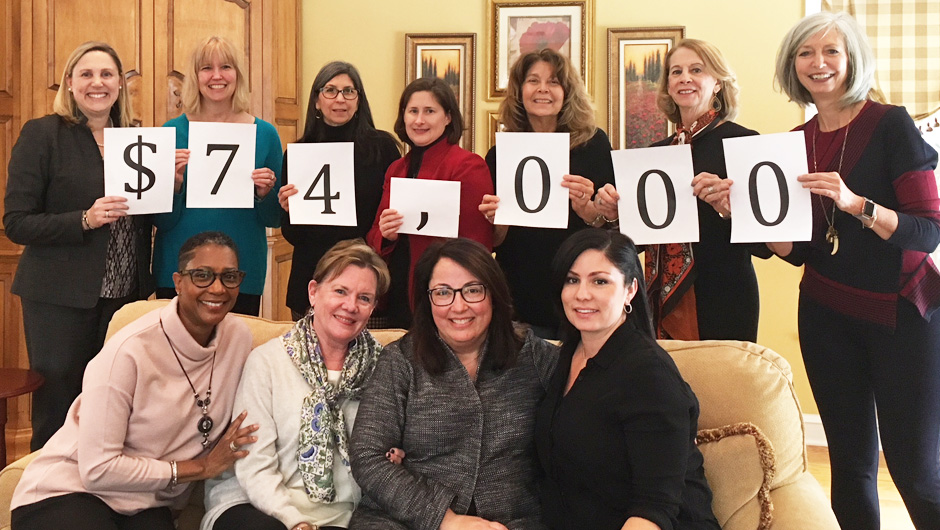How the Proposed Tax Plan Will Likely Affect Charitable Giving
By Glenn Henkel, Esquire | Kulzer & DiPadova, PA
As you have probably heard, there is now a rush for federal tax reform which could occur soon, possibly even before the end of 2017. Tax bills have been approved by both the United States House of Representatives and the United States Senate. Procedurally, the two bills must be “reconciled” meaning that a Joint Committee on Taxation is being formed with representatives of both legislative branches. This Committee will hash out any differences between the versions and propose a new complete bill that will be resubmitted to each legislative body for final approval. The identical bill must be approved by both houses of Congress (House and Senate) before that bill can be sent to the President for signature and implementation into law.
One hallmark of the proposals attempts to eliminate or limit tax deductions, particularly the current deduction allowed for “State And Local Tax,” commonly called the SALT deduction and the proposals will create more simplicity by increasing the “standard deduction.” This means that fewer taxpayers will be interested in “itemizing” their deductions to arrive at their final tax due. Under current law, a variety of “itemized deductions” can offset taxable income, the amount used to calculate the tax. Typical itemized deductions include not only the SALT deduction and home mortgage interest deduction, but also charitable deductions.
Because New Jersey is a high tax state, the proposed structure, if enacted, means that many New Jersey taxpayers will be less likely to “itemize” their deductions because of losing the SALT deduction. While the charitable deduction remains an approved deduction in arriving at taxable income, the effectiveness of the charitable income tax deduction will be reduced because many New Jersey residents will no longer be qualified to use the “itemized deductions” method in arriving at their taxable income. Hence, because the charitable deduction may be limited in 2018 and beyond, now is the time to make charitable contributions if the donor wants to secure the deduction.
Community Foundation of South Jersey Can Help
If an individual is interested in obtaining a charitable income tax deduction in 2017, the creation of a donor-advised fund at the Community Foundation of Southern New Jersey is an easy way to accommodate charitable goals. The amounts placed in the donor-advised fund can be treated as a 2017 tax deduction even though the funds may be disbursed to charitable beneficiaries years later. Now is a crucial time to consider creating a donor advised fund at the Community Foundation of Southern New Jersey if you plan to do so!
Another stealth provision contained in the proposed tax law involves creation of a new rule which would mandate that any “sale, exchange or other disposition” of a security will be determined on a “first in first out basis.” See Tax Cuts and Job Act Section 13533. Current law allows a donor to specify which shares (if there are multiple blocks of the same security held) are being gifted or sold. This may affect a common strategy used for charitable gifting. When an individual holds appreciated securities, a gift of the appreciated securities to charity will both avoid the capital gain tax that would be imposed if sold and secure a donation deduction equal to the fair market value of the securities at date of gift. This approach effectively makes any embedded capital gains “disappear.”
For example, suppose donor Charlie Charitable holds two blocks of Microsoft stock, both worth $1,000. Suppose one block of stock was recently acquired and has an income tax “basis” of $1,000. Suppose the other block of stock was purchased decades earlier and has a tax basis of $100. Charlie would be advised to donate the block of stock with the low basis because the capital gain imposed on sale makes it less valuable if he must liquidate the investment. This new rule would force Charlie to gift or sell the “low basis” block of stock. That is not a problem for Charlie if he plans to give the shares to charity but it would create a difficulty if he sells the shares. He would be forced to incur a tax liability. Suppose Charlie holds two blocks of General Electric stock. Long held stock with a basis of $30 a share and recently acquired shares that were purchased for $20 a share. He would be better holding and not gifting the General Electric shares. This provision, if enacted, will dramatically change the tax calculation to a long-held planning opportunity, gift of appreciated securities to charity. This new “first in first out” rule would apply on sales or donations of blocks of securities but it will create substantial administrative and accounting concerns, if enacted.
Now is the opportune time to consider charitable gifting to accelerate tax deductions in 2017 and a donor-advised fund at the Community Foundation of Southern New Jersey can help!
 Glenn Henkel is a shareholder in the firm Kulzer & DiPadova. Mr. Henkel is the author of New Jersey Estate Planning Manual: Theory, Practice & Forms – 2007 (with Steven K. Mignogna and Gerard G. Brew). He was an editor and a contributing author and editor of New Jersey Estate and Trust Litigation: 2nd Edition – 2012 (by Steven K. Mignogna) and New Jersey Probate Procedures Manual – 2009 (by Gerard G. Brew). He was one of the key principals on the NJ bar association committee to conform the UTC, as adopted by the Uniform Law Commission to New Jersey law.
Glenn Henkel is a shareholder in the firm Kulzer & DiPadova. Mr. Henkel is the author of New Jersey Estate Planning Manual: Theory, Practice & Forms – 2007 (with Steven K. Mignogna and Gerard G. Brew). He was an editor and a contributing author and editor of New Jersey Estate and Trust Litigation: 2nd Edition – 2012 (by Steven K. Mignogna) and New Jersey Probate Procedures Manual – 2009 (by Gerard G. Brew). He was one of the key principals on the NJ bar association committee to conform the UTC, as adopted by the Uniform Law Commission to New Jersey law.
Henkel is a Fellow of the American College of Trust and Estate Counsel. He is currently a member of the Board of Directors of the Philadelphia Estate Planning Council. He is a Past Chair of the Real Property, Trust and Estate Law Section and is Past Chair of the Taxation Section of the New Jersey State Bar Association. He is also a member of the American Bar Association, the New Jersey Bar Association, and the Camden County Bar Association.






